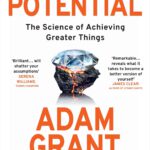Reading Time: < 1 min Formal education is essential. Without understanding the basics (with “the basics” meaning “years of schooling”), you have no foundation on which to grow further. However, the further growth is where the real value lies. In his book “Selling in a Post-Trust World“, author Larry Levine shares a simple quote from Jim Rohn that says: “Formal […]
Learning
What do you do with those pictures of slides?
Reading Time: 2 min Part of our team just spent a few days at the Digital Summit conference here in Atlanta, and it was excellent. We picked up some great tips and ideas that we’ve already started to use, and I’m sure more will come out as we unpack further. My thought for today is “what does unpacking really […]
Chesterton’s Fence
Reading Time: 2 min Whenever someone is starting a new job, I always advise them to take it slow at the beginning. Understand the current setup, see how things work, and then later begin to make suggestions. With our newest hire at GreenMellen, I told her exactly that. She’s coming from another agency, and we’re very excited to learn […]
Reflecting on experiences
Reading Time: < 1 min We all experience many things, and there is a lot to be learned from those experiences. The question is: how do you actually learn from them? As explained in Tara Jaye Frank’s book “The Waymakers“, it’s not the experience itself that creates the learning. She shares: John Dewey, American philosopher, educator, and cofounder of the […]
Interleaving your skills
Reading Time: < 1 min A few years ago I wrote about the idea of intentionally making some things more difficult and I recently discovered that this concept has a name: interleaving. The book “Hidden Potential” has some great examples of that: I assumed it would be ideal to practice one skill until you make progress, and only then move […]
Finding material to deploy attention
Reading Time: 2 min In Daniel Kahneman’s classic book “Thinking, Fast and Slow“, he said something simple that I’ve been chewing on for a long time. He said: “Intelligence is not only the ability to reason; it is also the ability to find relevant material in memory and to deploy attention when needed.” The reason this stuck with me […]
Never stop doubting
Reading Time: 2 min I recently read the book “Superforecasting“, which shared the stories and processes of those that are able to make predictions far better than most people can. While there is a lot of nuance in the book, and it’s well worth reading, one theme that came up over and over was that the best forecasters never […]
Shortform for long books
Reading Time: 2 min I’ve been using Blinkist for some book summaries for a few years now, and it’s great! However, I’m noticing a growing problem in the gap between long books and Blinkist, in that the “Blinks” just aren’t long enough to really share the heart of the book. Blinkist and most related platforms are proud of the […]
Repetition is the foundation of clarity of thought
Reading Time: < 1 min In recently listening to the Founders episode on Anna Wintour, the editor-in-chief of Vogue for the last 37 years, they shared a simple sentence that tied together a number of ideas I’ve had. The sentence was simply “repetition is the foundation of clarity of thought“. One of my early posts in my daily blogging streak […]
They all love to read
Reading Time: 2 min I recently decided to dig in to understand the reading habits of some of the most successful people in recent decades, and quickly found one common thread: they all love to read. All of them. I have no doubt that there are exceptions, but my initial digging didn’t find any. Here are ten people that […]









